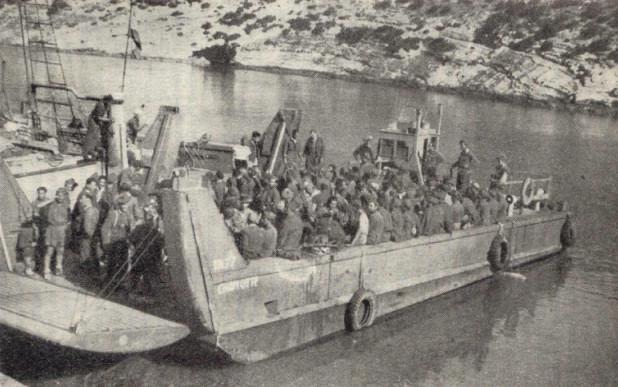
When World War II broke out across Europe, the Slovenian lands were divided between Italy, Germany, and Hungary. A formidable resistance movement sprung up in Slovenia, but a key element of the resistance that helped to liberate the homeland – the Overseas Brigades – were long denied the recognition they deserved.
In the months after Yugoslavia was attacked in 1941, thousands of ethnic Slovenians found themselves conscripted into Axis forces, some fighting in the scorching wastes of North Africa. Many others were considered to be irredeemable Slovenian nationalists and were sent to concentration camps.
After Italy capitulated in 1943, the allies organized a base in Bari in which newly liberated Slovenians were able to organize units known as the Overseas Brigades. They were soon joined by fighters from occupied Yugoslavia and soldiers who had been mobilized into the German armed forces against their will.
Five Overseas Brigades were formed in the months that followed -- each with a different mission but all sent buy the Allies to defeat the enemy back home in occupied Yugoslavia. The units comprised Yugoslavs of various ethnicities, but Slovenians were the most numerous.
The Brigades led serval attacks in occupied Yugoslavia and helped to liberate vast swathes of territory. Some of the units fought in the harsh, hilly terrain of Bosnia-Herzegovina on their way to Belgrade, others joined airborne units and defended Allied aircraft overflying Yugoslavia, while the Fifth Brigade made its way to the Slovenian region of Bela Krajina, where they were embraced by the local population, and then fought their way to the north, pushing out the Germans from large parts of southern Slovenia.
The Brigades all suffered substantial losses; some of the units lost a third of their members in battle. Their mission was a success, however, and on May 8, 1945, members of the Fifth Overseas Brigade helped to liberate the Slovenian capital of Ljubljana, where they were met with flowers and a public display of joy.
Still, some in Yugoslavia resented the Overseas Brigades, whose members were better equipped than the local Partisans and tended to be worldlier and far less ideological. Very few of them were doctrinaire Communists. The authorities responded by integrated them in regular Partisan units as quickly as possible, but that didn’t end the resentment. Well after the war, the role of the Overseas Brigades was downplayed and their heroic achievements remained all too little known in the country they helped to liberate.

































































